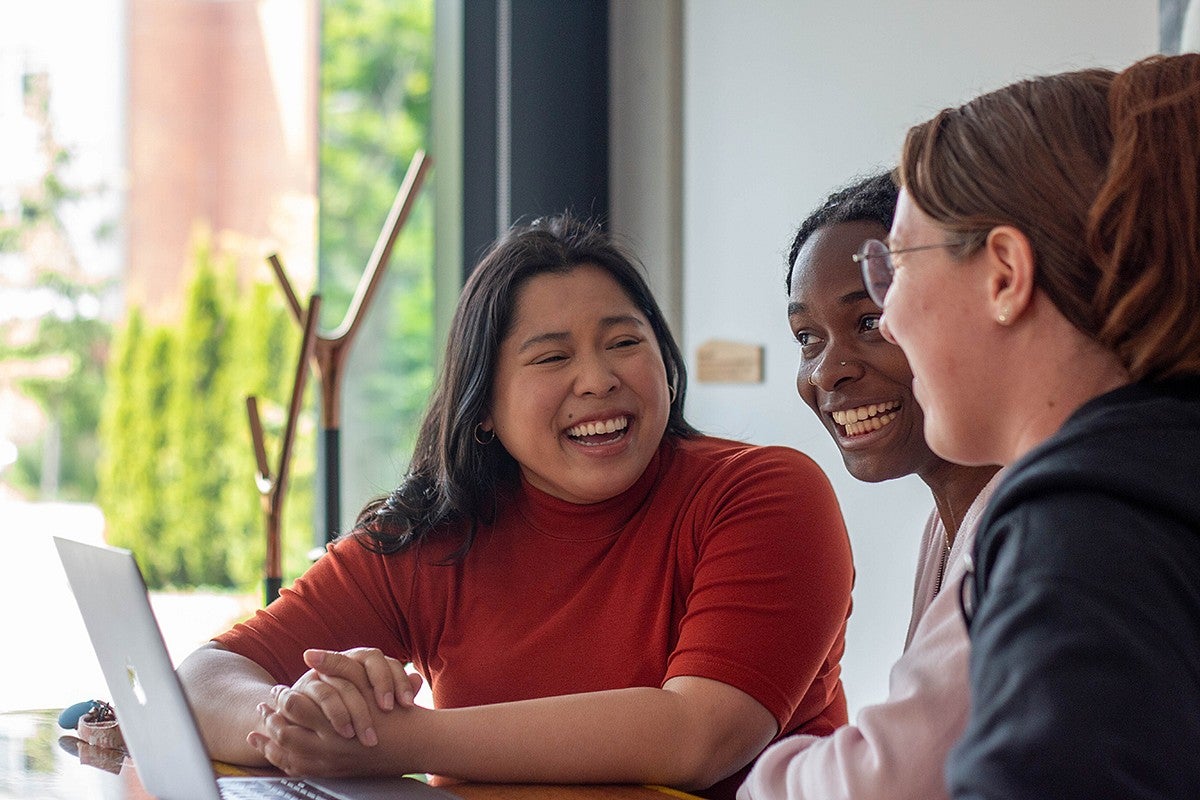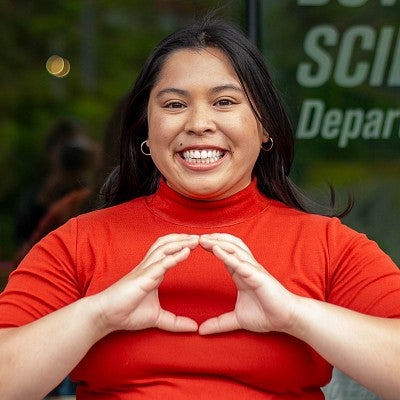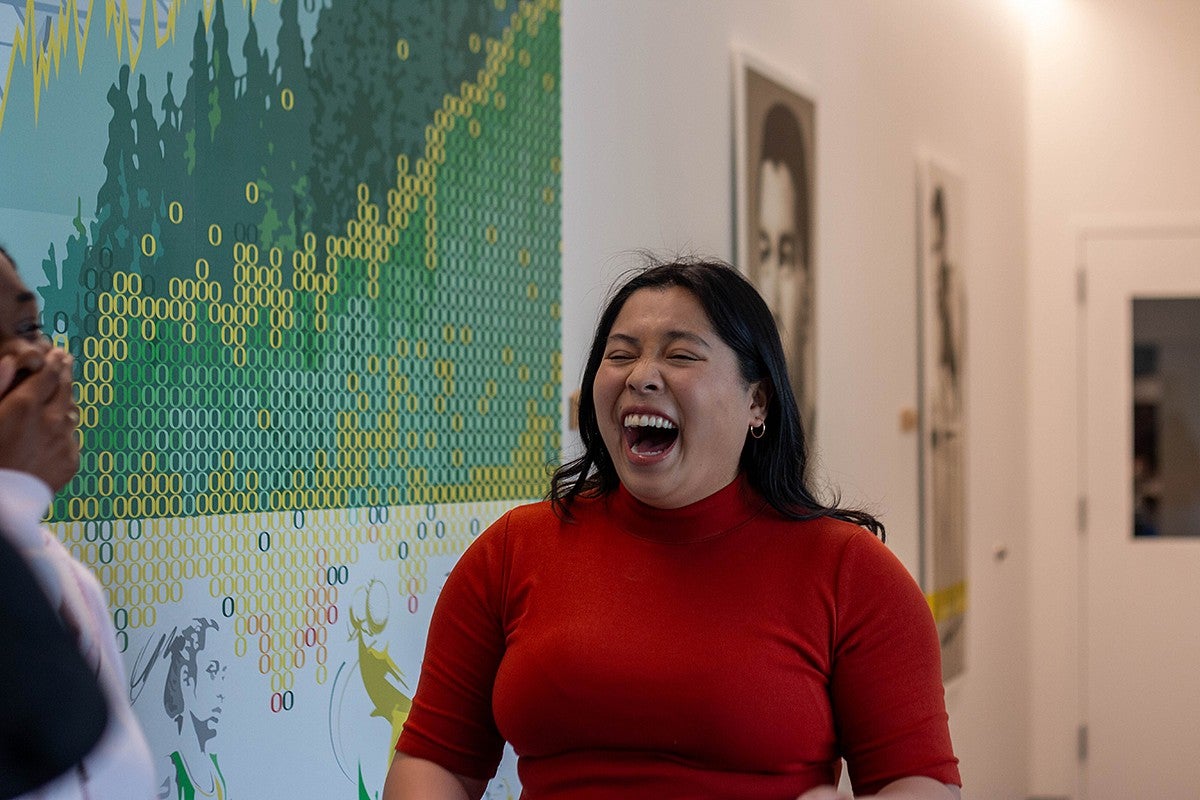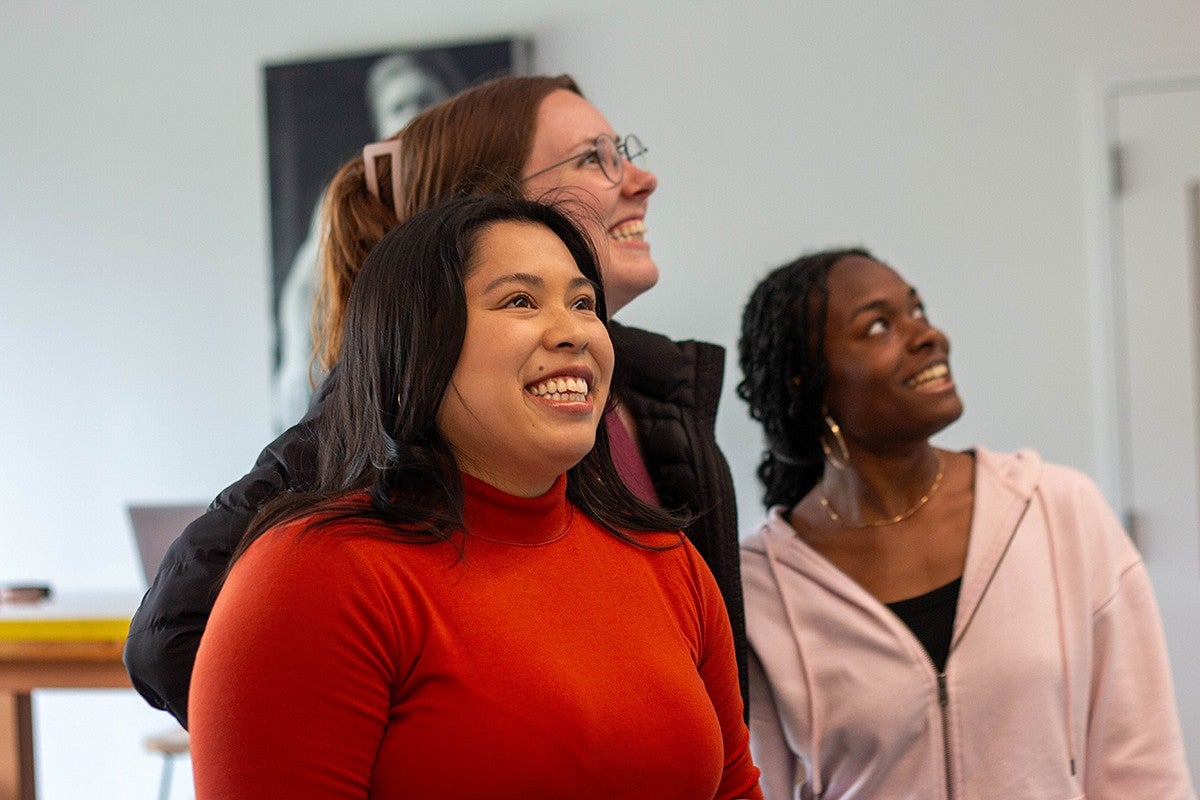
Caring for others
A shrill whistle sounded and Madi Serrano sprinted with her high school’s athletic trainer onto the football field. They knelt next to a player who had been hit and had injured his leg, binding his thigh and helping him off the field.
Serrano found out later that he had fractured his femur on the play, but the care she had given was crucial in preventing the injury from becoming life-altering for him down the road.
Knowing that she could perform in a high-pressure situation was what made Serrano consider medicine seriously. “It was like music,” she recalls. “We perfectly did what we needed to do.”

Madi Serrano
Major: Human physiology
Minor: Disability studies
Thesis: “The Effects of Exercise and Heat Therapy on the Ambulatory Blood Pressure of Adults with Untreated Hypertension”
Advice on the thesis project: Start writing early and in increments.
This summer, I can’t wait to: Reconnect with hometown friends.
What I’ll miss most about CHC: The good energy and people at the Honors College.
I’m grateful for: Loved ones, food, and community.
Where I’m headed next: Physician assistant school
Favorite book: “Wit” by Margaret Edson
Song on repeat: “Good News” by Bakar
Favorite spot in Eugene: Mi Cafe in Eugene or the UO’s HEDCO Institute
She was able to follow this passion at the Clark Honors College and the UO by majoring in human physiology and minoring in disability studies. Classes in these fields provided her with the scientific base she needed to accomplish her goal of going to physician assistant/associate school.
Serrano says the Honors College supplemented her learning outside of the sciences, something she believes is “so important for growing as a person and a future medical professional.”
She was raised in San Jose, California, the middle of three children in a tightly knit family. As a kid, Serrano had a positive disposition and a passion that made people feel comfortable. Her mom, RoAnne Serrano, says: “Her dad and I always knew she would end up in a field where she was helping others.”

In high school, Serrano played basketball, lacrosse and field hockey. She loved the community she found within athletics and she enjoyed school more because she knew that “me and my cohort all had that similar connection.”
Serrano spent a lot of time with her high school’s athletic trainer because of her own sports injuries and she was fascinated by the procedures she underwent. She began working as an intern under the trainer and traveled with teams to games to assist with injuries. “I loved it,” she says. The experience cemented her passion for medicine.
Carrying forward family values
RoAnne Serrano also had some influence over the decision, working as a registered nurse at the Lucile Packard Children’s Hospital at Stanford. For her 20 years working at the hospital, she was recognized with the Florence Nightingale Patient Care Advocacy award as a resource nurse and preceptor in the hospital’s nursing leadership. Madi Serrano says that “being able to have that kind of role model in my life has been the best.”
Her dad, Sinclair Serrano, works in software and fully supports Serrano’s medical aspirations. He has always pushed her to have “goals she could achieve to go above and beyond,” she says.
Both her parents serve as inspiration to her because they worked so hard “to make sure we could get to where we are today,” she says.
As a freshman, she dove into her coursework, taking a heavy load of classes. She also joined the rowing team, which required her to be up at 5 a.m. for practice each morning. In her sophomore year, Serrano began working as a research assistant in the Bowerman Sports Science Center under Dr. Christopher Minson, the Kenneth M. and Kenda H. Singer endowed professor, and Brendan Kaiser, a recent PhD graduate in the human physiology department.
Serrano loved working with participants in different studies. “This research is not only helping us inform ourselves, but it’s also impacting other people’s lives,” she says.
She formulated her thesis based on the work she performed in the lab. “The Effects of Exercise and Heat Therapy on the Ambulatory Blood Pressure of Adults with Untreated Hypertension” found that exercise and heat therapy did have an impact on some individuals, which is inspiring her to continue this research with some modified methods. Although the findings were not statistically significant, she is looking forward to her future studies in the field.
Initially, she says, “I was dreading the thesis.” But taking the 277 Honors College thesis prospectus with Daphne Gallagher, the CHC associate dean of undergraduate studies, “totally changed my view.”
Gallagher, she says, gave her the support she needed to bridge her existing experience and passion with the learning experience that the thesis provided. “I feel more intelligent after writing it, and I made a lot of great relationships along the way,” Serrano says.
Understanding her view of medicine
Now, Serrano is in the process of applying to physician assistant/associate school. One prerequisite is to amass a hefty number of hours working with patients. Already, through her activities over the years, Serrano has accumulated more than 3,000 hours of patient care. She has spent time during the school year working as a certified nursing assistant at Marquis Springfield Post Acute Rehab and as a physical therapist aide and scribe at Active Life Physical Therapy in Eugene.

Between rowing, work, her thesis, and her demanding course load, Serrano says “the Honors College was like my break. It was a way of grounding me.” Taking classes outside of science helped her re-center herself around her values of why she was going into the medical field in the first place. “It’s to be able to have the knowledge to help people in the future,” she says.
Her mom emphasized that these values were supplemented by her fearless attitude. “She’s not afraid to ask questions that others are wondering about,” RoAnne Serrano says. “She looks at problems as opportunities for change.”
Most of all, her Honors College experience helped solidify Madi Serrano’s understanding that working in the medical field is a partnership with patients, not a transaction. One important lesson she is eager to follow comes from a class she took about health policy that explored medical injustices that have happened over time.
She wants to emulate the doctors and other medical professionals who make the system work for all patients. “You have to care for people, not treat them as a paycheck,” she says emphatically.

